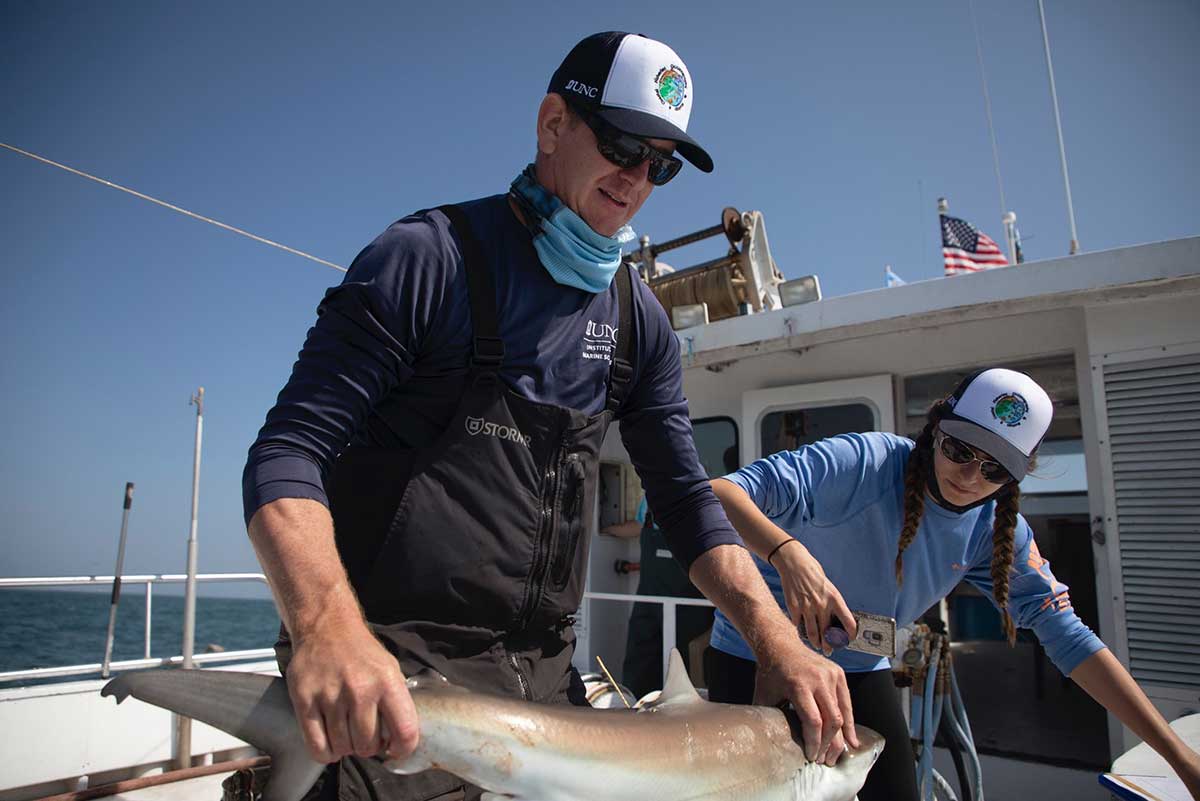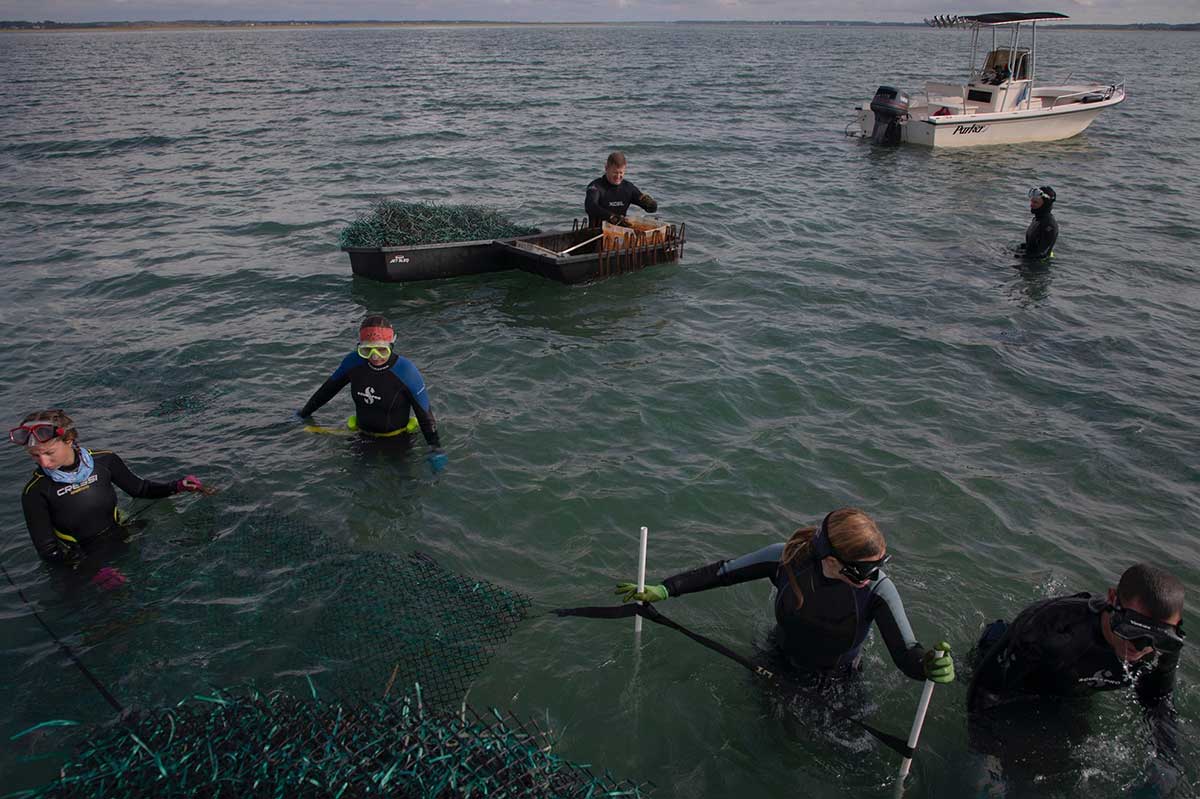By Sarah Padyk
What does it take to measure the health of an entire ecosystem? Joel Fodrie, a professor and researcher at the University of North Carolina at Chapel Hill, seeks to answer this question for North Carolina’s coastal habitats.
Fodrie and nine other principal investigators from universities across the state are working on a landmark project to analyze the status of coastal resources. For Fodrie, it is a unique opportunity to study the place where he grew up.
Fodrie was born and raised on the North Carolina coast, eventually leaving to attend UNC-Chapel Hill for his undergraduate education. However, Fodrie returned for a summer job at the UNC-Chapel Hill Institute of Marine Sciences (IMS) during his junior year.
“I came to the field station for a summer and was really impressed by the ability to do detective work in the coastal ocean,” Fodrie said. “Ecologists, in some form or fashion, are like detectives.”
Now after earning his Ph.D. in oceanography at the Scripps Institution of Oceanography (University of California, San Diego), he works as an estuarine ecologist at the IMS – a unit within the Department of Earth, Marine and Environmental Sciences as well as one of the Institute of the Environment’s field sites. His current Collaboratory-funded project aims to holistically measure the health and status of coastal marine fisheries and habitats by conducting research from multiple lenses.

“We’ve primarily set out in two directions,” Fodrie said. “The first is to try to rigorously measure: What is the status of North Carolina’s marine resources? The second part is to explore if and how the governance structure affects those marine resources.”
To do this, Fodrie and his fellow investigators have developed almost 200 indicators to measure different aspects of the ecosystem. Their goal is to effectively account for each component without ruling out how parts of this complex human-natural system interact.
“Larvae matter, the habitats matter, the big things matter, and the people matter,” Fodrie said.
Greer Arthur, research director for the Collaboratory, emphasized the value that this study provides to the state.
“This is a deliberately complex and broad research approach, and ultimately, could lead to evidence-based policy decisions that strengthen North Carolina’s fisheries and coastal systems, but in such a way that wildlife and fishery and the needs of the state’s residents and businesses are prioritized,” Arthur said.

This is not the first time that Fodrie has worked with the Collaboratory to produce research. Several years ago, Fodrie worked with the Collaboratory on a project that analyzed the shellfish industry and delivered recommendations to the NC General Assembly on avenues to responsibly grow the industry. This project was the foundation for his current work with the Collaboratory today and his interest in interdisciplinary research.
“As an ecologist, in some ways, you rarely deal with people,” Fodrie said. “This work pulls you out of that, and you’re out there talking to people because so many people care about coastal resources.”
He feels that the Collaboratory is a unique avenue to analyze issues that impact the state.
“I am very appreciative that the Collaboratory exists as it does, serving as a mechanism by which the state can identify important issues,” Fodrie said. “The Collaboratory has figured out very quickly this critical role to provide a pathway to jump on issues that typically don’t have an avenue of research support.”
Fodrie is excited by the potential of this project; and what it could mean for the area where he grew up.
“This is in some ways, a big, unreplicated experiment,” Fodrie said. “There’s only one North Carolina and one history of how we have landed where we’re at. It’s pretty exciting to move across these disciplines and feel like you’re learning something new.”
Sarah Padyk is a graduate student at the UNC-Chapel Hill Hussman School of Journalism and Media and is an environment and science communication dual degree student. She graduated with a BS in environmental science from UNC-Chapel Hill in May and is currently working towards an MA in media and communication. She is a communications intern with the Collaboratory for the 2022-23 academic year.
